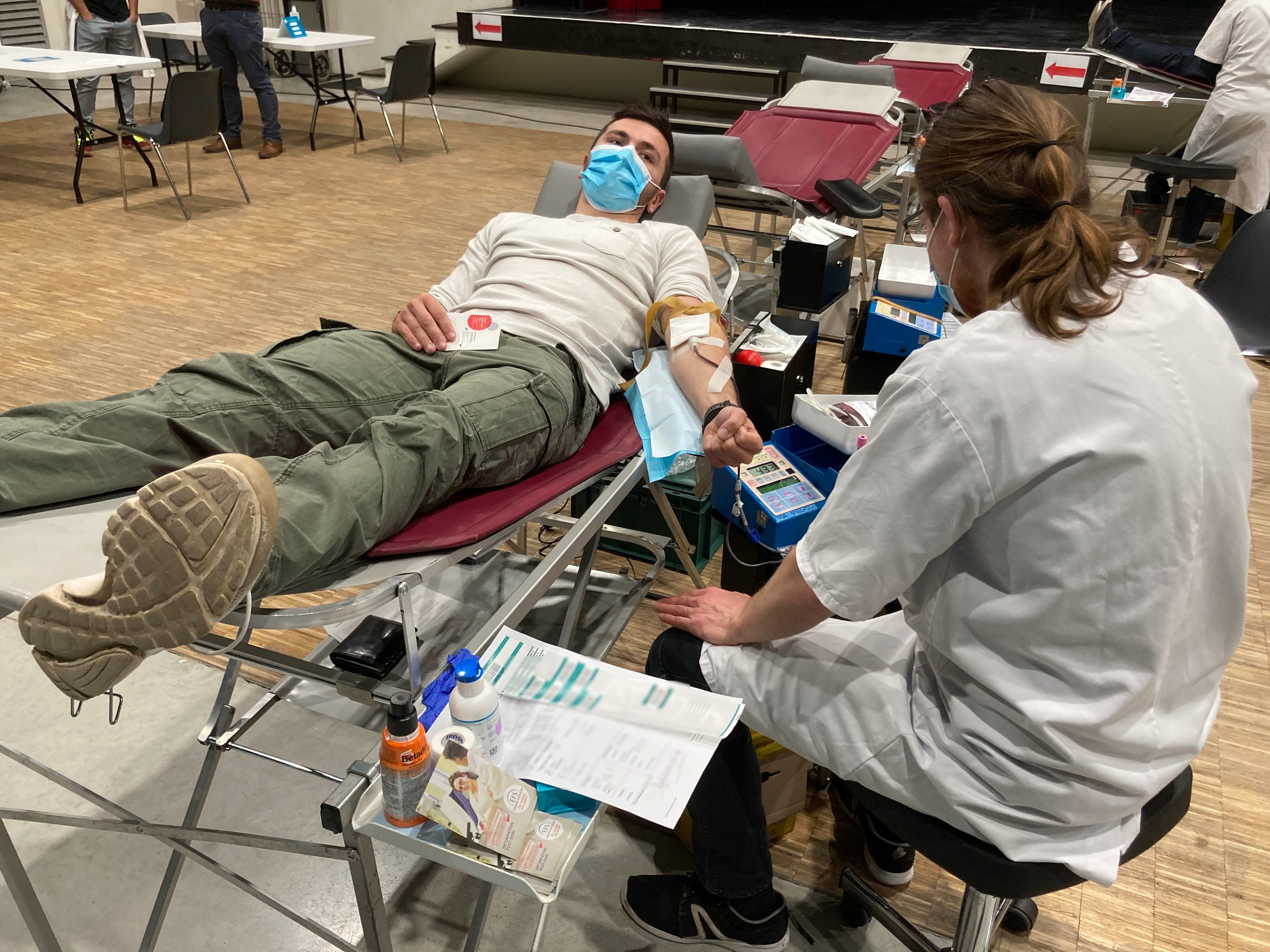Under the spotlight of the Bernard-Dague space in Louvres (Val-d’Oise), there are still no actors, but white coats. A few days ago, the auditorium, quite empty since the start of the health crisis, welcomed a different kind of public on the occasion of a collection organized by the French blood establishment (EFS). The more than 80 slots open from 3 p.m. to 7:30 p.m. have all been filled by donors. Good news for the EFS because the needs are still there. “They slowed down a little with the deprogramming of surgery last spring but not for long because activity quickly resumed, confirms Dr Ahmed Slimani, responsible for samples at the EFS Ile-de-France. In addition, we continuously have people who need to be transfused on a very regular basis. “
1,700 donations per day needed in Ile-de-France
Donations that are particularly essential in Ile-de-France since the region is not self-sufficient and alone requires 1,700 donations per day. “We only take 60% of our needs, the rest comes from the provinces,” explains the doctor. The concern is that when she is in difficulty, you have to be. Samples can be taken in departmental donation centers such as the one in Val-d’Oise, located in the René-Dubos hospital in Pontoise, but also during mobile blood drives.
And faced with the consequences of the Covid, the establishment had to adapt to be able to maintain them. “We could no longer make collections in companies since the employees were teleworking, nor in the universities where the students and teachers were at a distance”, specifies the doctor. It was therefore necessary to focus on the third pillar of mobile collections: town halls. “They have responded to make larger rooms available more frequently. In some municipalities, we have gone from two collections per year or even 4 or 5 sometimes, he continues. There was a real effort of solidarity. “
Thus, in May alone in Ile-de-France, no less than 191 are on the program : 14 in Paris, 21 in Hauts-de-Seine, 19 in Seine-Saint-Denis, 23 in Val-de-Marne, 35 in Essonne, 37 in Yvelines 42 in Seine-et-Marne and 23 in Val d’Oise.
To donate blood, you must now make an appointment. A system put in place “urgently” from the first confinement to allow collections to continue. “It’s about avoiding crowds to protect donors, volunteers and staff. This also made it possible to streamline the donor’s journey, ”says Dr Ahmed Slimani.
Despite everything, the health crisis was not without consequences on the levels of donations. “With the gradual reopening, it was more difficult because people were busy, took the opportunity to escape after these special months … But suddenly in August, we had to launch an emergency national appeal, c ‘was the first time in ten years, ”recalls the specialist.
“I will be glad if there are donations from others”
Today, the situation remains “fragile”. “We remain very vigilant for this traditionally difficult month of May with public holidays,” warns the caregiver. But our fear remains desertification with the deconfinement and the departures on vacation this summer. “
In Louvres that day, we find long-time donors, like Theo. “At first it scared me a bit and then I started in the army. One day while in operation, I had to donate blood to an injured colleague. I then understood the importance of giving and since then I give whenever I can, ”he explains. Kevin has been a donor for nine years. “I tell myself that it can really help someone and if one day I need I will be glad if there are donations from others”, smiles the thirty-something.
Some are also new donors, like Karine, 43 years old: “It really doesn’t cost much and it’s a way of showing solidarity. I tell myself that it is important especially in times like the one we are living. “
The next mobile collections in Val-d’Oise: this Thursday, at the La Challe neighborhood center in Éragny and at the Marcel-Pagnol space in Villiers-le-Bel, this Friday at the Eaubonne village hall , this Sunday at the cultural center of the park.
–


